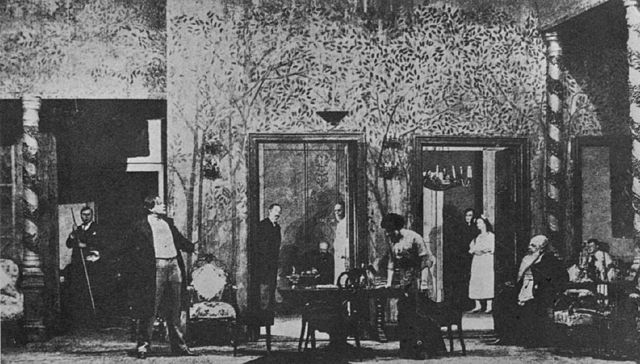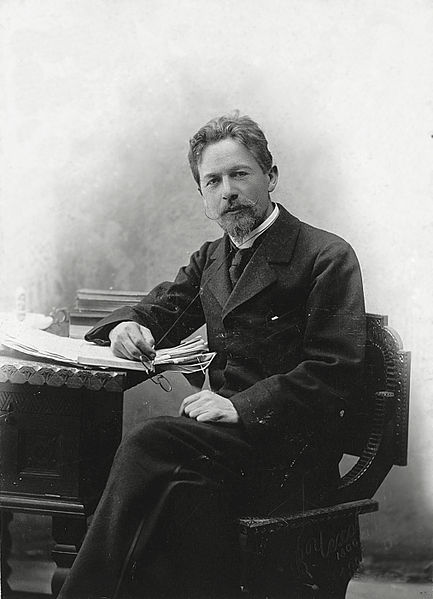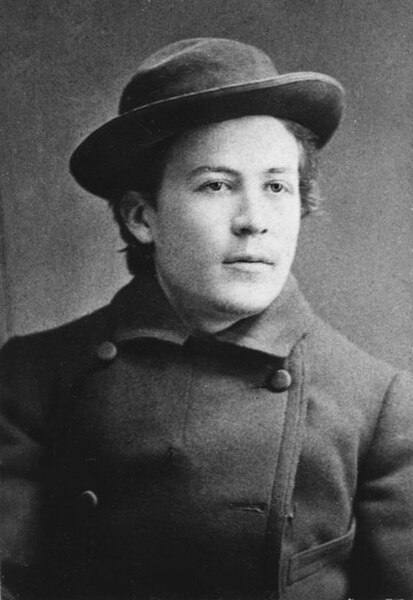The Cherry Orchard is the last play by Russian playwright Anton Chekhov. Written in 1903, it was first published by Znaniye, and came out as a separate edition later that year in Saint Petersburg, via A.F. Marks Publishers. On the 17th of January, 1904, it opened at the Moscow Art Theatre in a production directed by Konstantin Stanislavski. Chekhov described the play as a comedy, with some elements of farce, though Stanislavski treated it as a tragedy. Since its first production, directors have contended with its dual nature. It is often identified as one of the three or four outstanding plays by Chekhov, along with The Seagull, Three Sisters, and Uncle Vanya.
Scene from Act 3 of the original Moscow Art Theatre production
Konstantin Stanislavski as Leonid Gayev, c. 1922
The Cherry Orchard memorabilia at the Chekhov Gymnasium literary museum.
Anton Pavlovich Chekhov was a great Russian writer and playwright. His career as a playwright produced four classics, and his best short stories are held in high esteem by writers and critics. Along with Henrik Ibsen and August Strindberg, Chekhov is often referred to as one of the three seminal figures in the birth of early modernism in the theatre. Chekhov was a physician by profession. "Medicine is my lawful wife", he once said, "and literature is my mistress."
Chekhov in 1889
Portrait of Anton Chekhov by Isaac Levitan (1886)
Birth house of Anton Chekhov in Taganrog, Chekhova street, Russia
Young Chekhov in 1882







